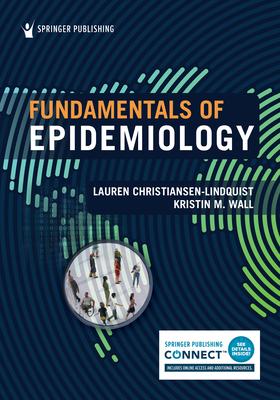Fundamentals of Epidemiology is a foundational resource that equips students with a strong understanding of both the principles and real-world applications of the science of public health. Its applied approach, demonstrating epidemiological concepts in action in a variety of different settings, uniquely prepares students for the challenges and exciting opportunities of this dynamic field.
This engaging textbook cultivates a strong knowledge base through an explanation of the history of epidemiology and its core concepts, while providing a framework for critical thinking about public health topics. Other foundational concepts are then described and explored in the context of the real world, including descriptive epidemiology and surveillance, analytic epidemiology, study designs, effect measure modification, systematic and random error, and data analysis and modeling. Building from chapter to chapter, the textbook reinforces key concepts and their applications to the field while also confronting head-on many common mistakes that new learners of epidemiology make. This textbook incorporates thoughtful public health examples, scenarios, and descriptions that foster the investigative mindset and problem-solving approach that is needed in epidemiology. With abundant illustrations, historical vignettes, case examples, and practice problems covering topics such as social determinants of health, infectious disease, applications of epidemiology to policy and more, this inviting textbook prepares students to think like an epidemiologist, equipping them with the fundamentals essential for careers in public health, medicine, nursing, and other health professions. Purchase includes online access via most mobile devices or computers
Key Features
- Provides a more logical sequence for learning epidemiology, with iterative learning strategies aimed at reinforcing key concepts
- Includes an in-depth focus on surveillance and descriptive epidemiology
- Discusses causality, counterfactual thinking, and exchangeability at a level appropriate for new learners of epidemiology
- Provides problem-based learning examples that encompass diverse settings and populations, and links to other health disciplines (health policy, health economics, behavioral sciences, environmental health)
- Presents visuals in a consistent manner to foster a sound understanding of the core epidemiological principles
- Qualified instructors also have access to a full suite of instructor resources
